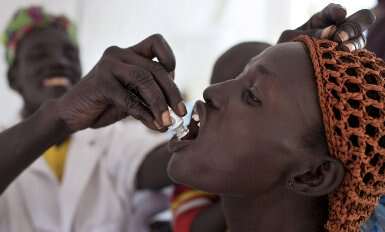World health groups ring alarm bell over threat of cholera in South Sudan
July 7, 2015 (GENEVA) – International health organizations said there has been serious threat of cholera in South Sudan, warning the disease could spread like wildfire this rainy season unless measures were taken to curb it.

In a statement extended to Sudan Tribune on Tuesday after the meeting, the organizations revealed that up to 700 cases of cholera have already been reported in the South Sudanese national capital, Juba, and Jonglei state’s capital, Bor, already resulting in 32 deaths, particularly children under 5 years of age.
The organizations warn of devastating consequences should the current cholera outbreak in the government controlled areas extend to conflict affected areas where health facilities are destroyed.
“If the current outbreak spreads beyond current locations, especially into the states affected by conflict, the lack of functioning health facilities could lead to a devastating loss of life,” partly reads the statement.
“Currently 184 health facilities have been closed or destroyed in conflict-affected areas,” it revealed.
It said currently UNICEF continued to respond to the cholera outbreak by strengthening health facilities, distributing soap to communities, conducting vaccination campaigns and working on prevention by training volunteers, teachers and religious leaders.
The organizations in conjunction with the ministry of health in South Sudan, they said, were working throughout the country to put schools at the forefront of the response.
In Central Equatoria, some 1,340 students and 30 teachers had already benefited from life-saving information, with a goal of reaching 150 schools. Teachers and students were being educated on hygiene promotion including the importance of hand-washing with soap and safe handling of food.
UNICEF and partners were also broadcasting cholera prevention messages and hosting talk shows on 19 radio stations in South Sudan and putting up posters in schools and public locations.
The organizations urged donor community to avail funds needed for the provision of health services in the country, saying there was an urgent need for 4.6 million dollars to fund an emergency cholera response for six months.
(ST)
